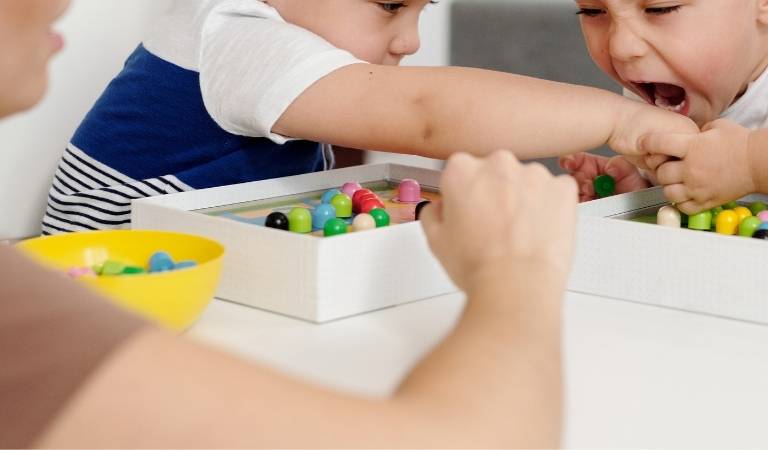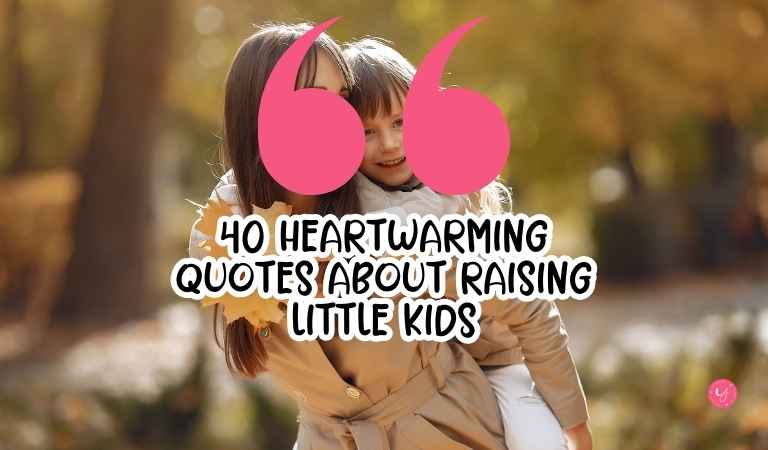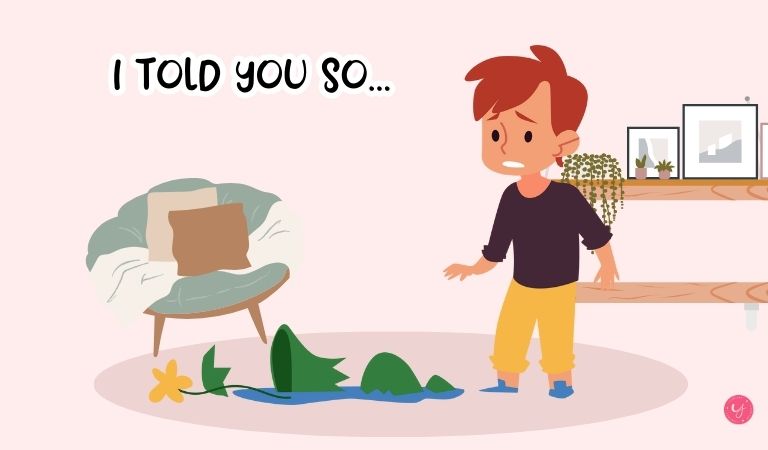How to Stop Your Toddler from Biting Their Sibling (And Prevent Sibling Fights for Good)

Inside: Learn how to stop your toddler from biting their sibling with proven strategies to address triggers, teach empathy, and prevent sibling fights for good.
Sibling relationships can be a rollercoaster—equal parts heartwarming and challenging. But when biting enters the picture, it’s a whole new level of stress.
This has been a reality in our home lately, as my 1-year-old daughter has started biting her older sister, who is 6 years old and impressively patient for her age.
If you’re in the same situation, let me assure you—you’re not alone.
Many families face this phase, and while we haven’t completely moved past it, I’ve seen real progress with the right strategies.
With a little patience, understanding, and consistency, you can help reduce biting and create a more peaceful dynamic between your kids.
Why Do Toddlers Bite Siblings?
Toddlers bite for a variety of reasons, and understanding these can help you address the behavior effectively. Here are the most common triggers.

Limited Communication Skills
Toddlers, especially 1-year-olds, don’t have the words to express their feelings or needs yet. When they’re frustrated or want something, biting can become their go-to way of communicating.
In our home, I noticed my younger daughter often bit during moments when she couldn’t express herself, like wanting a toy or feeling overwhelmed.
Attention-Seeking Behavior
A toddler may bite to get attention, especially when they feel like their older sibling is getting more focus.
This became obvious to me when my younger daughter bit while I was busy helping her sister with homework.
Teething Discomfort
For younger toddlers, teething is often a culprit. Biting provides relief for sore gums, which has definitely been a factor for us.
Overwhelming Emotions
Toddlers experience big emotions—excitement, frustration, or anger—and don’t know how to handle them. Biting often becomes an outlet for these feelings.
In our home, most biting incidents happened during moments of conflict over toys or when emotions were running high. Recognizing these triggers helped me plan better responses.
How Long Does the Biting Phase Last?
The biting phase typically peaks between 12 and 24 months and gradually fades as toddlers develop better communication and coping skills.
For us, biting started as early as some weeks before 12 months.

While it hasn’t completely stopped, the frequency has reduced significantly thanks to consistent intervention. It’s encouraging to know this phase is temporary, even if it feels endless at the moment.
If you’re dealing with this now, remember—it’s a developmental stage, not a personality trait.
How to Stop a Toddler from Biting Their Sibling?
Stopping toddler biting requires patience and consistency.
Here are some strategies that have worked in our home (and for other families):
Stay Calm and Address It Immediately
Reacting with anger or frustration can escalate the situation. Instead, use a calm but firm tone to say, “No biting. Biting hurts.”
Addressing the behavior immediately helps toddlers connect the action with the consequence.
Let’s be real, it is tough.
In our home, staying calm has been hard most of the times—especially when my older daughter is crying. But I tried so hard and surprisingly, it’s made a noticeable difference in keeping situations from escalating further.
Redirect Their Behavior
Instead of simply saying “no,” give your toddler an alternative. While saying “NO” often is not recommended, in this case, it is more often not going to work on its own.
For example, if they’re biting out of frustration, guide them toward other ways to express their feelings. If your toddler isn’t talking yet, you can encourage simple gestures like pointing or signing to indicate what they want or feel. For instance, if they’re frustrated about a toy, show them how to point at it or gently guide their hand toward you to “ask” for help.
If teething is the issue, offer a teething ring or safe toy to bite on instead.
In my experience, helping my 1-year-old daughter use non-verbal ways to express herself, like pointing or reaching out, has significantly reduced biting incidents. It takes patience, but over time, these small steps can make a big difference.
Teach Empathy
Toddlers may just be starting to understand the concept of others’ feelings.
Calmly explain how their actions affect their sibling: “Your sister is crying because biting hurts. Let’s give her a hug.”
While this doesn’t stop biting instantly, I’ve seen small signs of empathy developing in my younger daughter over time.
Hugging is one thing that is really showing some difference overall in our case. My toddler has learned to relate that someone sad needs to be hugged.
Reinforce Positive Behavior
Celebrate the moments when your toddler manages frustration without biting.
Simple praise like, “Great job sharing!” or, “You used your words—that’s amazing!” or even a heartfelt appreciative smile encourages them to repeat good behavior.
Supervise High-Tension Moments
If you know certain situations—like sharing toys—tend to trigger biting, stay close to intervene before it happens.
I’ve made it a habit to supervise closely during playtime, especially when emotions might run high. This has helped me step in and prevent biting before it starts.
How to Stop a Toddler from Biting when Mad?
Biting often happens when toddlers feel overwhelmed by emotions like anger.
Here’s how to manage those heated moments:
Acknowledge Their Feelings
Validate their emotions by saying something like, “I see you’re upset because your sister took the toy.”
This helps them feel understood while modeling calm communication.
Provide Alternatives
Teach them other ways to express anger, like stomping their feet or saying, “Stop!” Practicing these during calm moments has helped my younger daughter remember them when emotions run high.
Create a Calm-Down Spot
Set up a cozy corner with pillows or books where your toddler can go to calm down.
I have tried this approach twice. We both go to a specified spot and sit silently praying without any conversation signaling her to be quiet even if she tried to be active.
It has definitely worked to calm down the situation and make her divert from the behavior
To Sum it Up – Progress, Not Perfection
This biting phase hasn’t been easy, and my 6-year-old’s patience has been tested more times than I can count. But every small win—whether it’s one less biting incident or my younger daughter pointing instead of biting—feels like a step forward.
If you’re in the middle of this phase, know that it will pass. Celebrate the little victories, stay consistent, and remind yourself that you’re doing your best. With time, love, and the right strategies, peace can return to your home.




